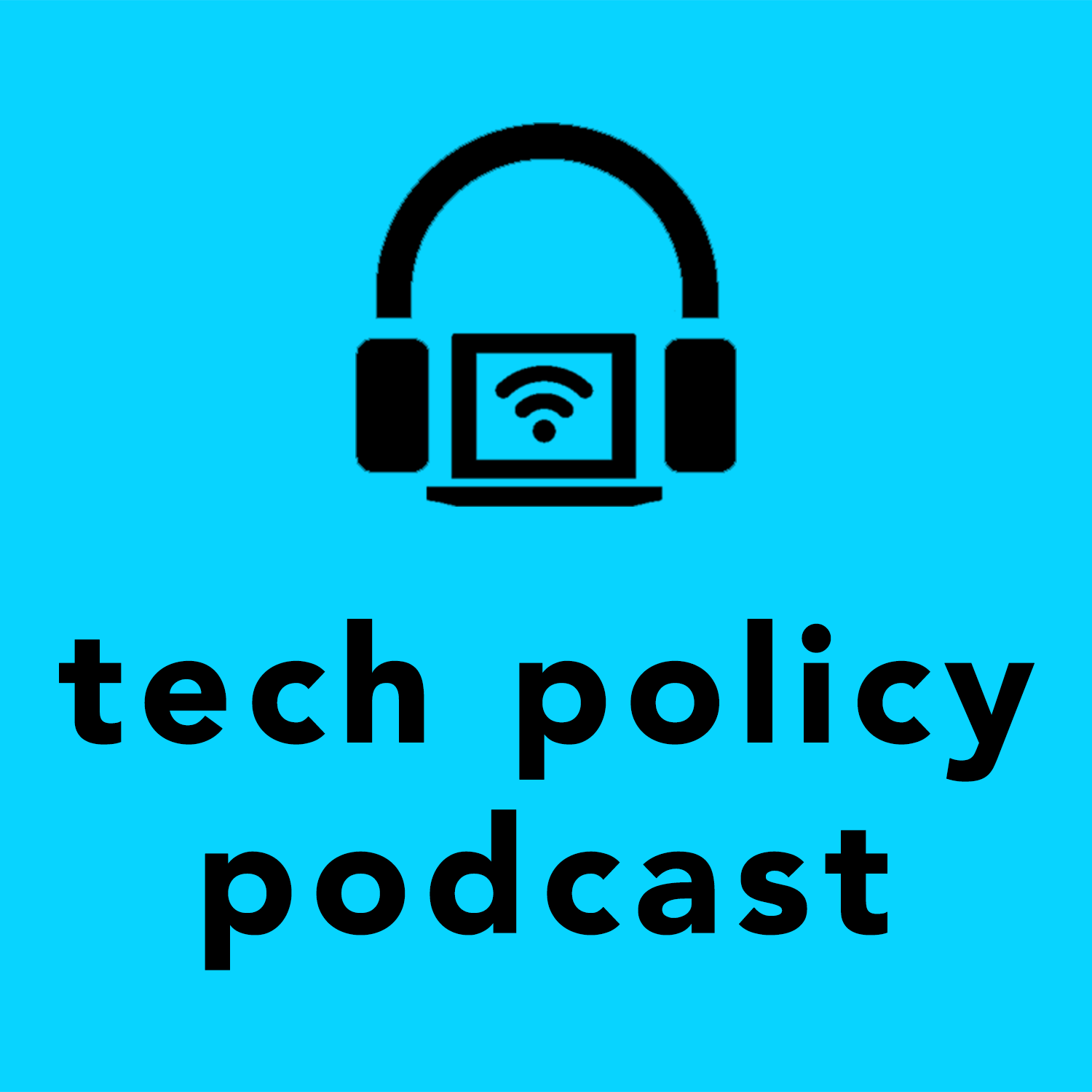Episodes
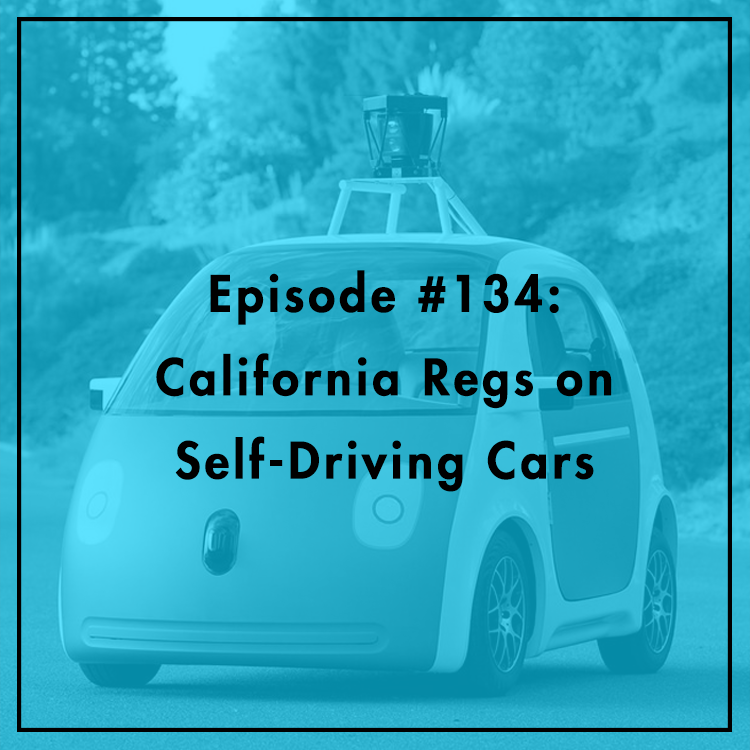
Tuesday Oct 25, 2016
#134: California Regs on Self-Driving Cars
Tuesday Oct 25, 2016
Tuesday Oct 25, 2016
Recently, the Obama administration released non-binding “guidelines” for self-driving cars, telling states not to create their own regulations just yet. California went ahead anyway, and the Golden State’s DMV drafted new regulations based on the National Highway Traffic Safety Administration’s (NHTSA) guidelines. Did California jump the gun? What changes could the DMV make to improve the draft proposal? It’s open for public comment, and several organizations have weighed in. Here to discuss their joint comments, co-authored with R Street and ICLE, are Marc Scribner, research fellow at CEI, and Berin Szoka, President of TechFreedom.
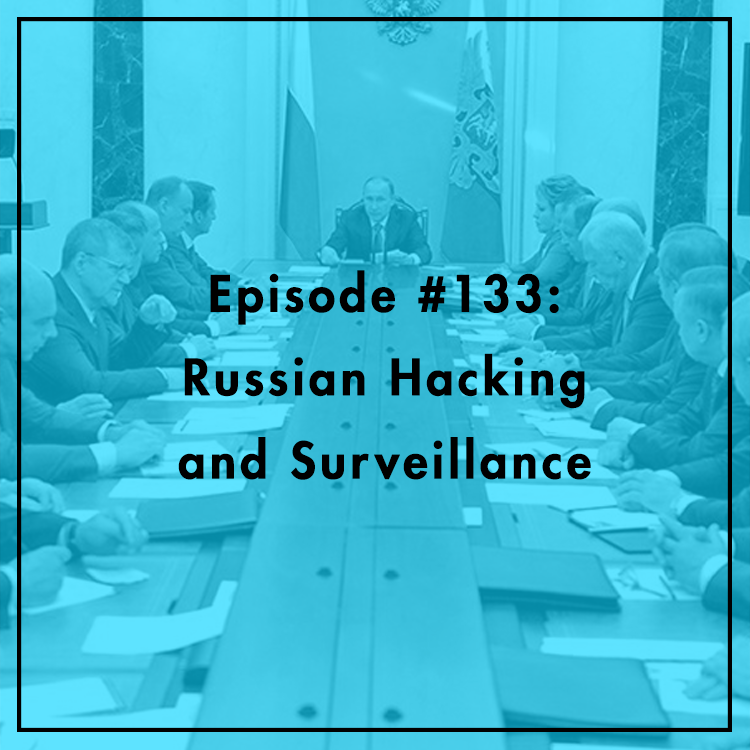
Friday Oct 21, 2016
#133: Russian Hacking and Surveillance
Friday Oct 21, 2016
Friday Oct 21, 2016
Edward Snowden has been living in Russia for over three years under political asylum after leaking classified documents about American surveillance practices. Ironically, Russia’s policies on surveillance are hardly libertarian. Snowden recently spoke out against so-called “Big Brother” legislation introduced in the Duma, Russia’s legislature. On cybersecurity, Russian hacking has dominated the American news cycle, especially around electoral politics. Evan is joined by Russian native and TechFreedom Legal Fellow Ashkhen Kazaryan. They discuss hacking, surveillance, and the tenuous relationship between Cold War foes. For more, see Ashkhen’s op-ed.
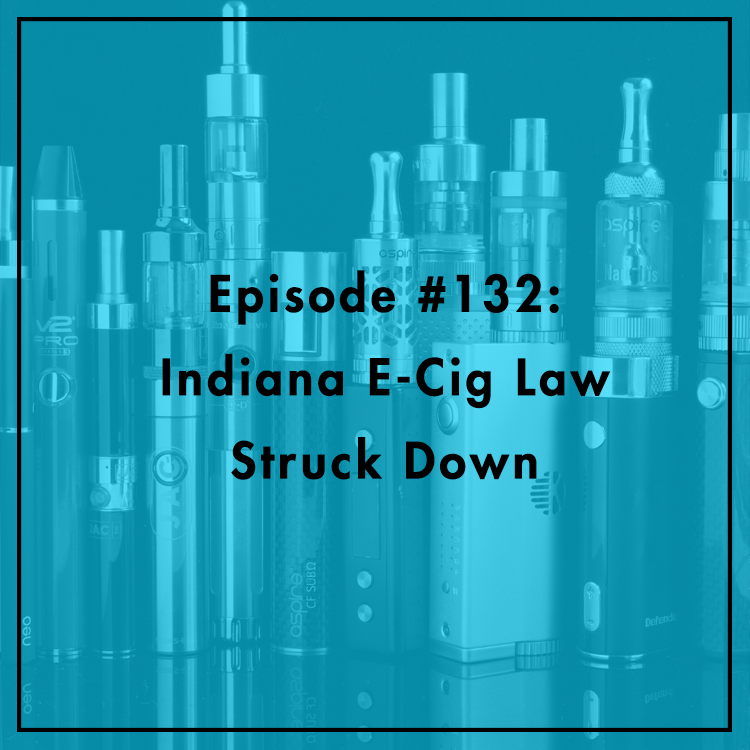
Monday Oct 17, 2016
#132: Indiana E-Cig Law Struck Down
Monday Oct 17, 2016
Monday Oct 17, 2016
Vapers in Indiana scored a federal court victory recently, as Judge Richard Young ruled that Hoosiers can buy e-vapor products not approved by the state Alcohol Tobacco Commission. He said Indiana’s regulations were responsible for creating a local monopoly. While the law signed in May 2015 by Governor Mike Pence was billed as protecting public health, the rules had little to do with product safety and everything to do with padding the pockets of the one security company that could comly and offer services. The FBI is investigating. Manhattan Institute’s Jared Meyer joins to discuss the impact of Indiana’s law and the subsequent ruling. How is the market expected to change as a result of Judge Young’s decision? For more see his article in Forbes.

Wednesday Oct 12, 2016
#131: Uber Battles in Montreal, London
Wednesday Oct 12, 2016
Wednesday Oct 12, 2016
London’s black cabs have long been icons in the British capital. But Mayor Sadiq Kahn is worried that pressure from Uber and other ride-sharing companies is threatening to put the city’s taxi industry out of business. That’s why he unveiled a 27-point plan to ensure that black cabs don’t “go the way of the red telephone box.” Will the plan create a level playing field for competition, or is this just another giveaway to the taxi industry? Elsewhere, the Quebec government struck a last-minute deal with Uber to prevent the company from ditching Montreal. Manhattan Institute’s Jared Meyer joins the show to discuss these international developments. For more, see his op-ed in Forbes.
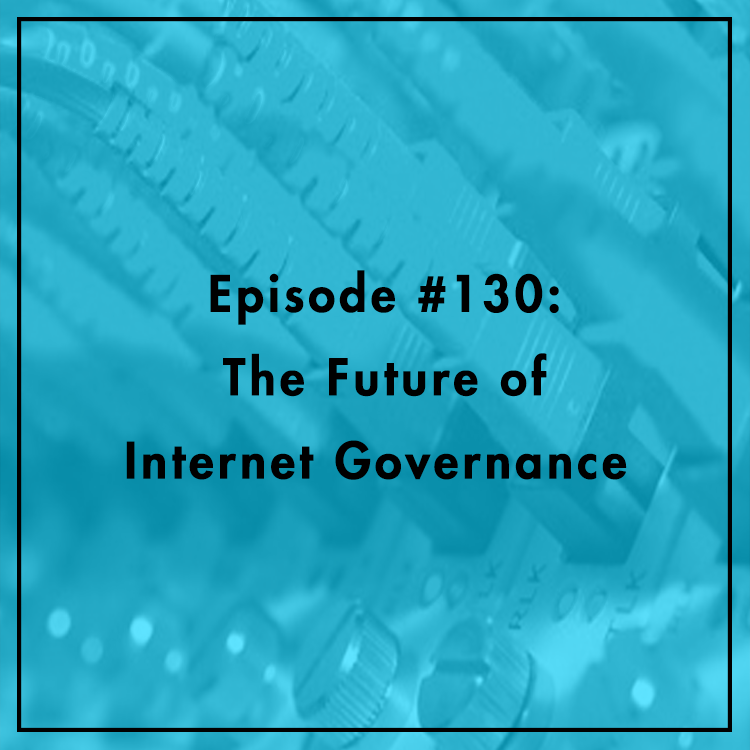
Thursday Oct 06, 2016
#130: The Future of Internet Governance
Thursday Oct 06, 2016
Thursday Oct 06, 2016
You may have heard a lot of news recently about President Obama and Ted Cruz debating whether the US should “give away the Internet.” But there’s more to Internet governance than the so-called “IANA transition.” Evan is joined by Shane Tews, Visiting Fellow at the American Enterprise Institute, and David Gross, Partner at Wiley Rein. They discuss the future of Internet governance — getting beyond the domain name system. What is the proper role for governments in controlling the Internet? How do we protect Internet freedom from the likes of China and Russia? How involved, if at all, should the UN be? How will this debate impact consumers around the world?
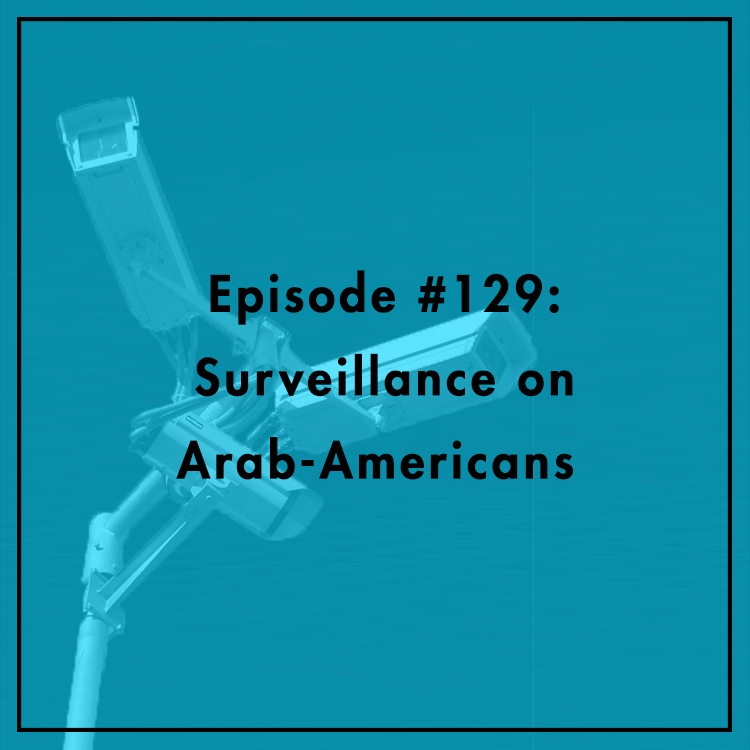
Friday Sep 30, 2016
#129: Surveillance on Arab-Americans
Friday Sep 30, 2016
Friday Sep 30, 2016
If you’ve ever gone through airport security, you’ve felt the effect of the 9/11 attacks. But for Arab-Americans, the impact is a lot more serious than longer lines and inconveniences. Evan is joined by Yolanda Rondon, Staff Attorney with the American-Arab Anti-Discrimination Committee. They discuss how government policies involving counterterrorism have shaped the public image of Arab-Americans and Americans who are Muslim. How has surveillance and social media monitoring impacted these communities? What sorts of reforms could improve relations between law enforcement and Arab-Americans?

Monday Sep 26, 2016
#128: Mobile Money in Africa
Monday Sep 26, 2016
Monday Sep 26, 2016
Cell phone ownership in Africa has ballooned over the last decade, bringing the benefits of the Internet to developing populations. In particular, mobile finances have taken off in places like Kenya, where the heavily-regulated banking system had long failed to serve entrepreneurs and low-income customers. What makes Kenya such an attractive place for mobile money? Could other countries benefit from adopting this approach? Scott Burns, Mercatus PhD Dissertation Fellow, joins the show to discuss. For more info, see Scott’s post on Alt-M.
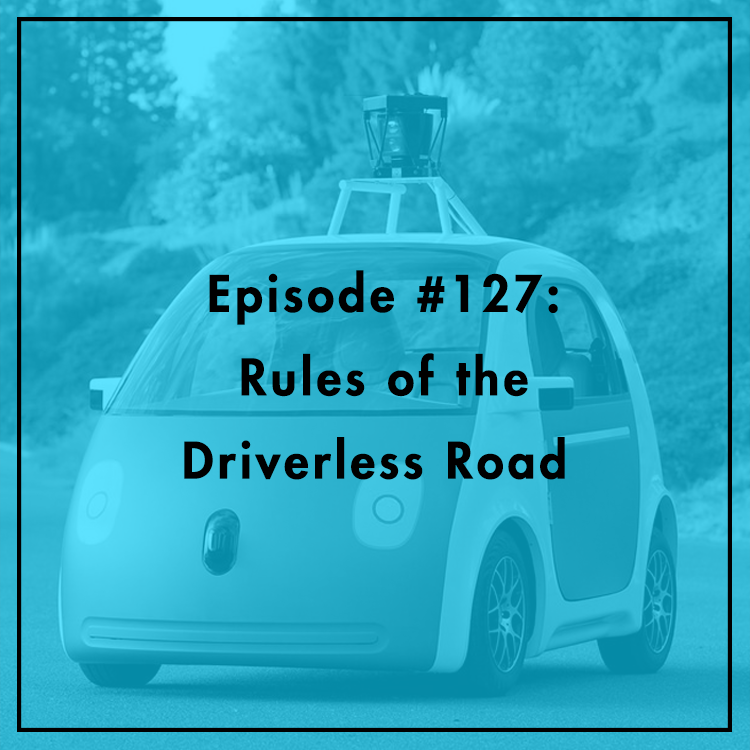
Thursday Sep 22, 2016
#127: Rules of the Driverless Road
Thursday Sep 22, 2016
Thursday Sep 22, 2016
“Driverless cars” is a hot topic this year, especially as self-driving Ubers hit the roads in Pittsburgh. This week, the National Highway Traffic Safety Administration (NHTSA) put out guidelines for autonomous vehicles, including performance standards, model state policy, and regulatory tools for future innovations. What impact with the Federal Automated Vehicles Policy have? Is it premature to regulate driverless cars at this early stage — before they’ve even hit the road en masse? Evan is joined by Marc Scribner, a research fellow at the Competitive Enterprise Institute. They discuss the Feds’ policy on driverless cars, what it gets right, what it gets wrong, and what the driverless future will look like. For more, see Scribner’s article.

Tuesday Sep 20, 2016
#126: Who Watches the Watchmen?
Tuesday Sep 20, 2016
Tuesday Sep 20, 2016
We know from the Snowden leaks that the NSA and other intelligence agencies are watching us. But who watches the watchers? Congress is responsible for overseeing intelligence practices, but is it doing its job effectively? A growing number of experts thinks not. What can be done to strengthen oversight and protect journalists and whistleblowers? Nathan Leamer, Outreach Manager at the R Street Institute, and Daniel Schuman, Policy Director at Demand Progress, join the show to discuss. For more, see their report.
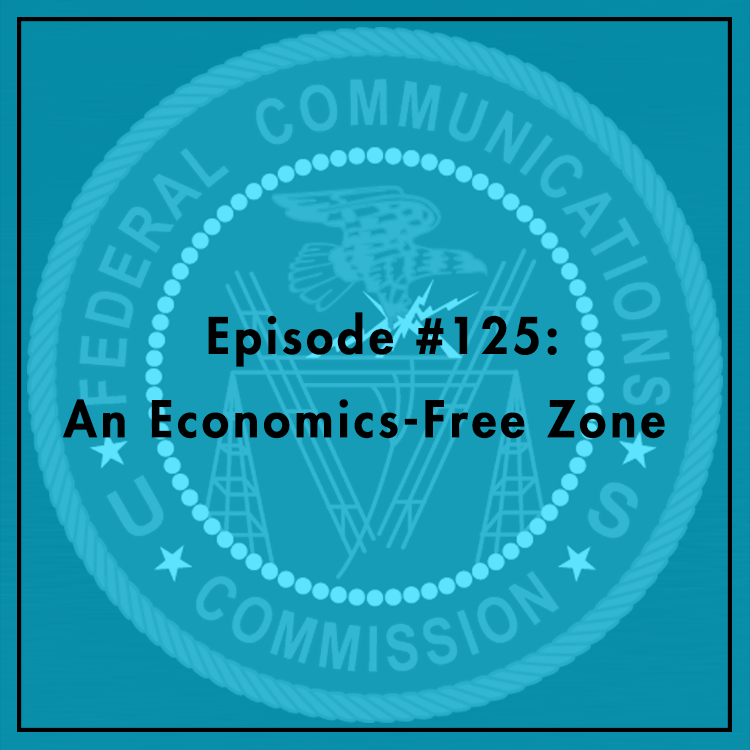
Friday Sep 16, 2016
#125: An Economics-Free Zone
Friday Sep 16, 2016
Friday Sep 16, 2016
Is the FCC an “economics-free zone?” The agency routinely issues regulations that will have a major impact on businesses and consumers. But does the Commission truly weigh the trade-offs — the costs and benefits of its policies? Not nearly enough, says Hal Singer, Senior Fellow at the GW Institute for Public Policy. In an op-ed for the Hill, he charges that this FCC in particular is more preoccupied with politics than economics. What does it mean to be “economics-free?” What can the agency do differently. Evan and Hal discuss.

